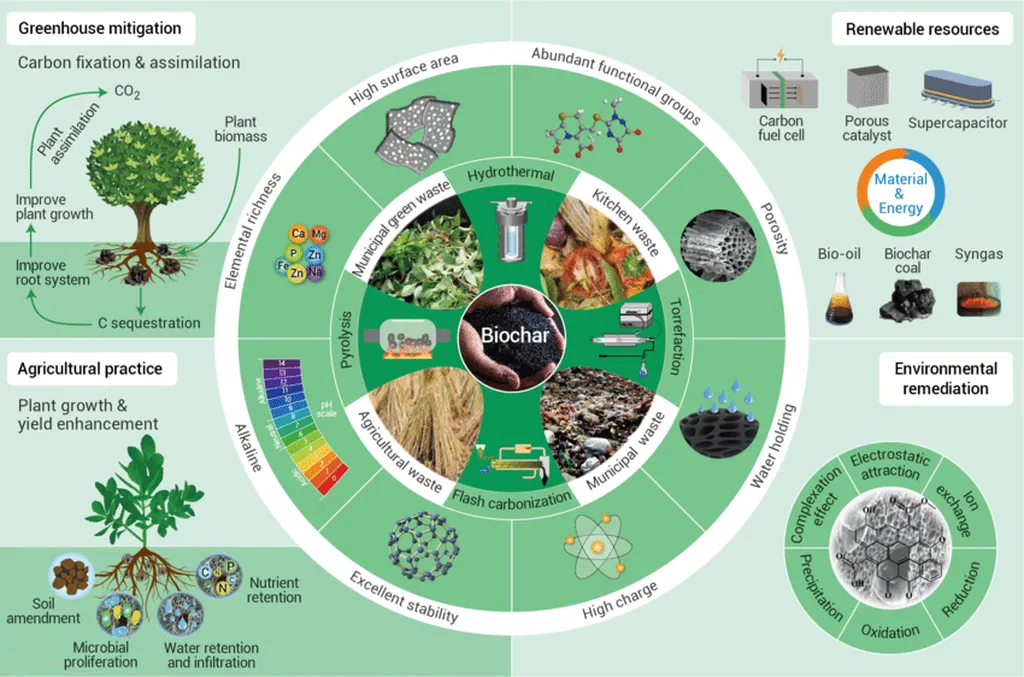In the quest to combat climate change and reduce greenhouse gas emissions, scientists are turning to an ancient material with a modern twist: biochar. A recent study published in the journal *Energies* (which translates to “Energies” in English) sheds light on the potential of biochar as a negative emission strategy, offering a promising avenue for the energy sector to explore.
Biochar, a carbon-rich product derived from organic and waste biomass through thermochemical processes like pyrolysis, gasification, and hydrothermal carbonization, is gaining traction for its dual benefits: carbon sequestration and renewable energy production. Andre Amba Matarru, lead author of the study and a researcher at the Department of Mechanical Engineering, Graduate School, Kookmin University in Seoul, Republic of Korea, explains, “Biochar production technology presents a unique opportunity to address both climate and energy challenges simultaneously.”
The study highlights recent advancements in biochar production, emphasizing how process design controls can enhance key properties such as carbon stability, atomic ratios, porosity, and energy density. These improvements are crucial for optimizing biochar’s performance in various industrial applications, from agriculture and construction to energy generation and carbon capture systems.
One of the most compelling aspects of biochar is its potential to produce renewable fuels like hydrogen. As Matarru notes, “The production of hydrogen from biochar not only provides a clean energy source but also contributes to the circular economy by utilizing waste biomass.” This dual benefit could make biochar an attractive option for energy companies looking to diversify their portfolios and reduce their carbon footprint.
However, the path to large-scale adoption is not without its challenges. Economic costs, feedstock logistics, process optimization, and potential environmental or social impacts are all hurdles that need to be addressed. Matarru stresses the importance of interdisciplinary research, robust quality standards, and supportive policies to unlock biochar’s full potential.
The study underscores that with integrated efforts across science, industry, and policy, biochar can serve as an effective and sustainable technology for emission reduction. As the energy sector continues to evolve, biochar production technology could play a pivotal role in shaping future developments, offering a viable path towards global carbon neutrality goals.
In an era where innovation and sustainability are paramount, biochar stands out as a promising solution. As Matarru and his colleagues continue to explore its potential, the energy sector watches closely, eager to harness the benefits of this remarkable material.

